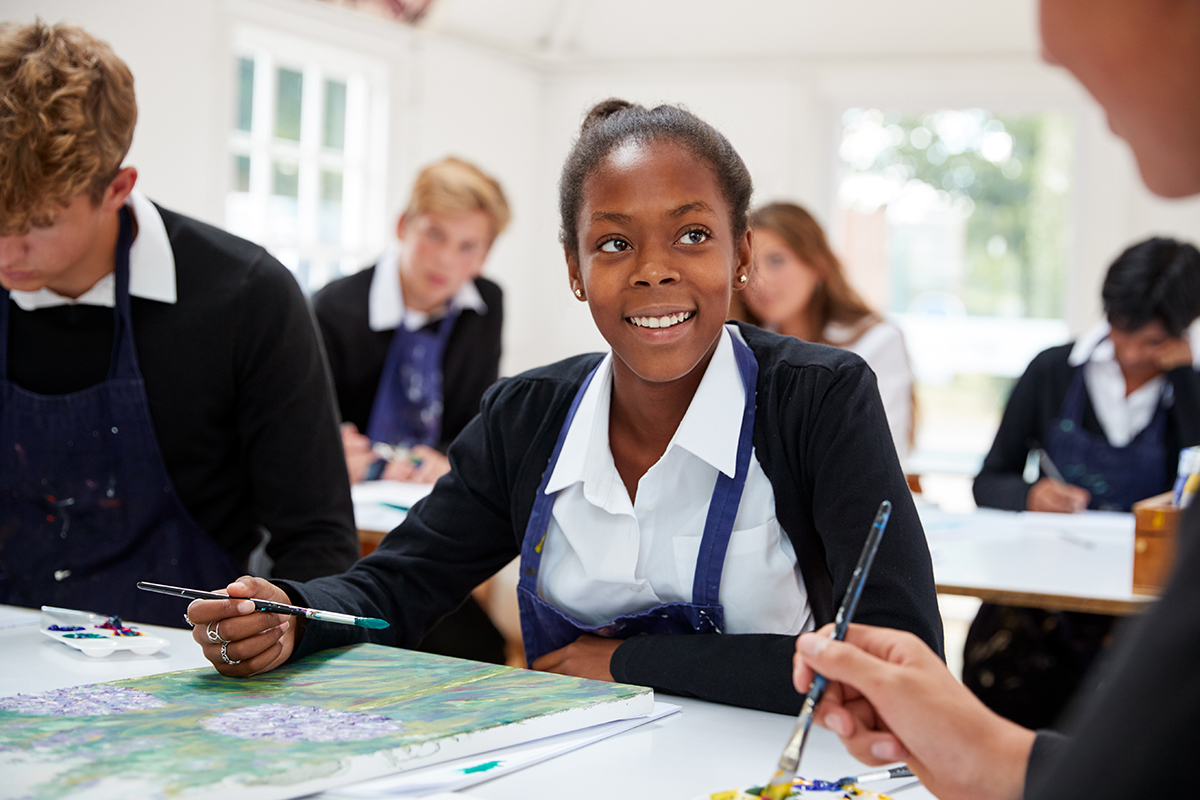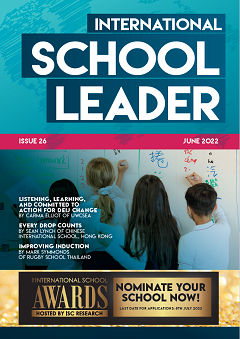New Cairo British International School in Egypt won the Pastoral Initiative at the 2020 International School Awards this January. Deputy Head Tracy Connor explains the initiative which implemented a daily student check-in platform to make emotional wellness an everyday practice at the school.
New Cairo British International School (NCBIS) is an IB world school for 725 students of 65 nationalities aged from 3 to 18. Our initiative all began when we introduced a mentor team to support children with their emotional wellness. We very quickly noticed a higher level of teacher referrals to the mentor team than we had anticipated. We realised there was a need for student self-referral and early interventions to ensure that our students’ social and emotional needs were being met.
We started with ‘I want you to know’ boxes. These were physical boxes where students were able to post notes about their feelings and needs. We discovered that students were using these boxes daily to tell an adult in school how they felt.
This led us to consider more effective ways to collect and track students’ emotions and feelings, and to record their responses and our reach-outs. Having this data would mean we could identify students with social and emotional needs, and plan and deliver personalised mentoring programmes for them. Tracking and monitoring student wellbeing, in the same way that academic progress and attainment is tracked, enables us to plan appropriate academic intervention.
From paper to platform
Our initiative developed into one in which students who were receiving mentoring were asked to track their feelings against a sliding scale of emojis. This simple solution proved so effective that we turned the idea into an online platform.
We selected a developer called YouHue who were already developing a platform for students. Working closely with the development team at YouHue, we piloted a basic solution with our Year 3 students. The children were asked to use the platform for a daily check-in, selecting from a range of emojis; from anxious to excited, that reflected how they felt, and adding a comment if they wished.
The pilot gave us a chance to discover several ways in which the platform could be improved. We worked with the YouHue team, proposing ideas and highlighting needs that emerged as we used it. The platform enabled us to analyse the data collected and we found we were able to identify patterns of emotions for particular students which meant we could address social and emotional needs before they had chance to manifest into more challenging issues. We were able to learn about the children on a more personal level, as well as identify common student needs which gave us evidence to tailor and develop our mentoring programmes.
Full implementation
The pilot was crucial for the success of the platform that we rolled out to the wider school. We introduced it one year group at a time and it is now an effective initiative used daily throughout the entire primary school and into secondary. Alongside the platform, lessons and assemblies teach children how to recognise their own emotions and those of others, and how emotions manifest themselves in our words and actions.
Every student has at least one chance – and often, more than one chance – to check in to the platform each day. The students feel free and confident to express themselves. They are so familiar with emojis from their mobile phones they find it easy to use them as reliable reflections of their feelings. Crucially for any international school, emojis are a universal language, accessible to all learners regardless of their level of English. At NCBIS we have over 60 different nationalities of students and language is a barrier for some of them. The focus on emojis takes away the language barrier ensuring all our children are free to express themselves.
Tracking and responding
The daily check-ins help to flag up, and enable staff to address, the individual needs of students as they arise. Teachers and TAs are able to see check-ins as they are posted, allowing them to open channels of communication when necessary, helping to remove the barriers to learning that a child may be experiencing. Certain words and emojis, such as ‘bully’ or sad faces, generate immediate alerts to class teachers and the pastoral team, to ensure a child can be supported appropriately on the same day.
This is proving to be a positive and safe channel for our students with complex psychological problems. They are able to express and let us know how they feel every day without the constant pressure of face-to-face conversation, which can be daunting or too invasive for some. Behaviour trends and anomalies help to identify when a one-to-one conversation might be beneficial to help a child feel supported and to give them time and a place to talk openly.
The system is secure and it’s sustainable. Each child has a passcode that remains with them throughout their time in primary and as they move into secondary school, gathering a longer-term picture of every child’s social and emotional needs, as well as immediate needs. It also lets staff know when a child is feeling happy, helping us to get to know the things that make the child content, helping us to understand our children and their home lives on a deeper level.
Developing an emotional toolkit
The YouHue student check-in has enabled our primary students to develop their emotional literacy and emotional resilience, and is helping them to develop their own toolkits for dealing with the stresses, disappointments and excitements of everyday life. It has helped us to spot patterns and trends in individuals and in groups of students, allowing us to tailor our mentoring programmes to provide individual support or plan for group intervention to children with similar needs. It has helped us to identify social, emotional and behavioural barriers to learning more effectively. It has enabled us to pick up serious safeguarding cases which may have otherwise not have been flagged, as well as enabling us to identify students who would benefit from mentoring programmes and SEL intervention.
Students at NCBIS now know it is OK to not be OK. They feel confident to let us know how they are feeling whether it is positive or negative. The check-in opens up the doors for children to talk. Our recent ISI (BSO) inspection report judged NCBIS as Excellent in pastoral provision and our student check-in has played a fundamental part in that progress.
I passionately believe that if we each fulfil our role in developing our students’ emotional literacy and their individual toolkits for dealing with the ups and downs of everyday life, we will be educating the next generation of global citizens in the most powerful way possible.

Tracy Connor is the former Deputy Head at New Cairo British International School https://www.ncbis.co.uk/ Connect on LinkedIn https://www.linkedin.com/in/tracy-connor-450131100.
Subscribe to ISL Magazine for more!


